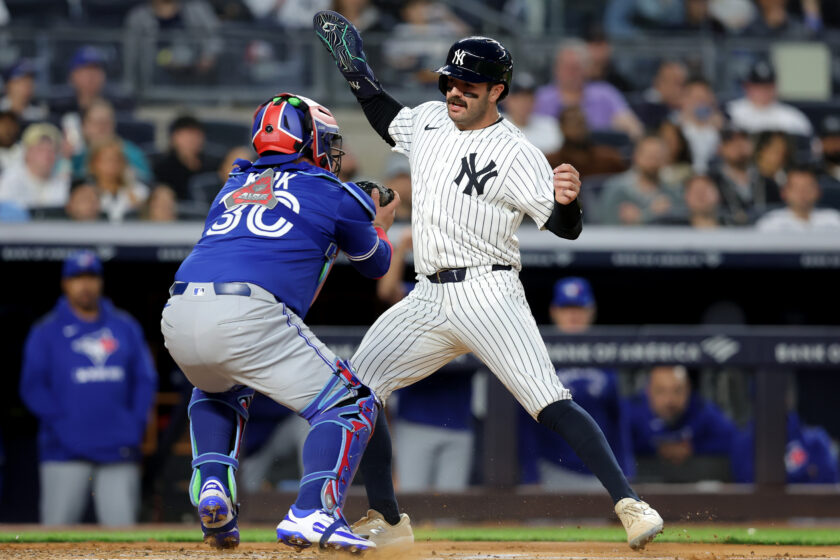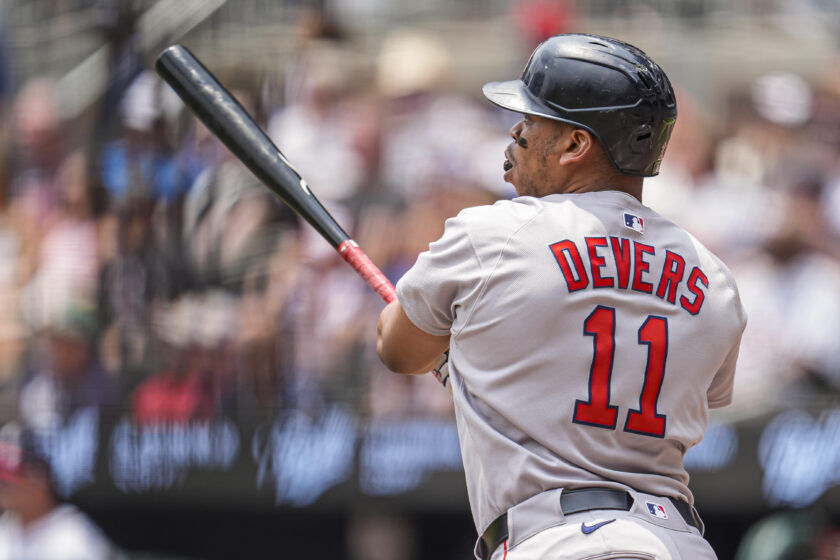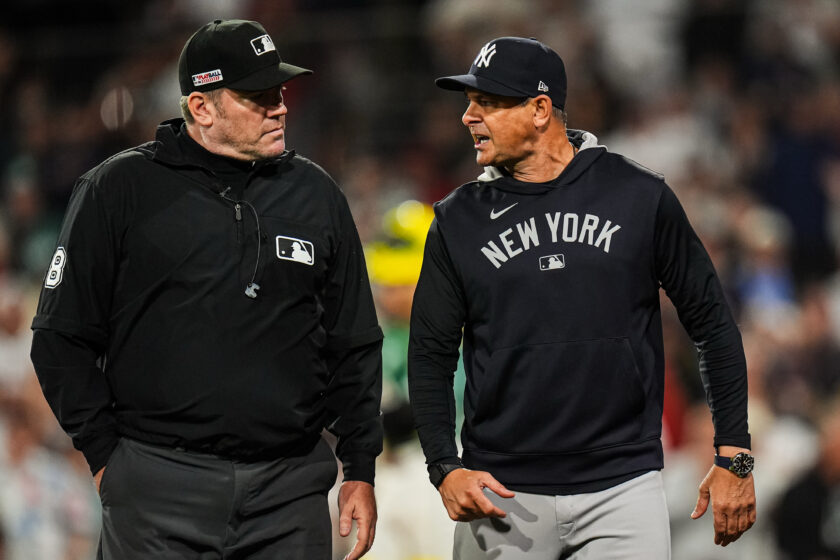Lock him up? The New York Yankees face the Gleyber Torres decision
Gleyber Torres was arguably the New York Yankees’ MVP in 2019, which means he’s destined to become a very wealthy player shortly.
[sc name=”Thomas Hall Banner” ]The New York Yankees possess one of the best young players in the entire league in Gleyber Torres. Although, the young emerging superstar will likely command a significant raise after next season.
This offseason, general manager Brian Cashman will be tasked with making a very complicated decision regarding his young infielder. If not signed to an extension before the end of the 2020 season, Torres will be eligible to enter arbitration for the first time in his career next winter.
While the Yankees have rarely ever concerned themselves about saving money, they should at least consider doing it with Torres. If not, Torres has a very good chance of becoming the second-highest-paid player on the team behind only outfielder Giancarlo Stanton by at least 2023.
The 2023 season may seem extremely far from now, but planning for the future is certainly something that Cashman is continuously thinking about. Based on Torres’s numbers from this past season, there’s no debating whether the 22-year-old deserves an extension from the Yankees this offseason.
Through 144 games, Torres recorded 38 home runs, 90 RBI, .256 ISO, 125 wRC+, 3.6 fWAR and an impressive slashing line of .278/.337/.535/.871 as well. Among all middle infielders since Torres’ debut in 2018, he’s recorded the fourth-highest wRC+ (123) and the 10th-highest fWAR (5.6) in the league.
Torres also made significant improvements from his rookie season during this past season. The soon-to-be 23-year-old was able to lower his strikeout rate from 25.2% in 2018, to 21.4% in 2019. Torres also increased his HR/FB rate from 17.9% during his rookie season, to 21.5% this past season.
Based on the adjustments that he’s already made in his two seasons in the majors, Torres is only likely going to grow at the plate even further through the next few seasons. The only thing that held Torres back from leading the Yankees in wins above replacement this past season, was because of his poor defensive numbers.
Torres split this past season between second base and shortstop, where the young infielder committed nine errors at second and eleven at short. Additionally, Torres generated a -7 DRS, -4.2 UZR and a -11.7 UZR/150 at second base, along with a +1 DRS, -2.1 UZR and a -4.7 UZR/150 at shortstop this past season. Since he’ll primarily be featured at shortstop in 2020, Torres should be able to further develop his defensive skills next season.
If the Yankees were to sign Torres to an extension similar to the eight-year deal for $100 million that Braves outfielder Ronald Acuna Jr. agreed to last spring, then Cashman would likely be saving his team a lot of money. During the entirety of Acuna Jr.’s contract, the superstar won’t receive more than $17 million per season from the Braves. At that price, the Yankees would be receiving a major bargain for Torres.
With Torres playing shortstop, which is a much more meaningful position than one of the three outfield positions, the Yankees’ young star is proving to be capable of demanding upwards of $30 per season in the near future. So, the Yankees will likely save themselves from handing out that type of salary, while also avoiding the risk of free agency by locking up Torres this offseason.
Instead of proposing an eight-year deal worth $100, the Yankees should offer Torres $120 million over eight seasons. In doing so, the Yankees would buy out all four years of arbitration with Torres, along with three years of free agency as well. Meaning, Torres would remain with the Yankees through the 2027 season.
[sc name=”Yankees Center” ]As part of this new contract, Torres would receive a considerable raise from his $605K salary from this past season. Ideally, the Yankees would pay Torres $10 million over the first three seasons of his contract, including exactly $1 million in 2020. Following those three seasons, Torres would garner a $22 million AAV over the remaining five seasons of the contract.
This eight-year deal would also keep Torres under contract until his age-31 season, which essentially supplies the Yankees with the majority of his prime years at a price tag significantly under $30 million/season. With Torres’ contract situation handled, the Yankees would gain more clarity regarding the future of their payroll. The Yankees could also spend more time focusing on the futures of outfielder Aaron Judge and catcher Gary Sanchez, who are both eligible for arbitration for the first time this offseason.
According to Cot’s Baseball Contracts, Judge, who made $684K this past season, is expected to earn $5.9 million through arbitration in 2020. As for Sanchez, the 26-year-old is expected to make $4.75 million next season, which is a considerable increase from the $669K he made in 2019.
Both players will also likely be paid near $20 million per season prior to becoming eligible for free agency in a couple of seasons. If neither Judge or Sanchez are extended this offseason, then the Yankees will have just two more seasons before each of them will reach free agency.
By keeping Torres to an AAV of $22 million through the final five years of his deal, along with paying him just $10 million through the first three, the Yankees will be able to allocate the money they save on him towards resigning both Judge and Sanchez. In doing so, the Yankees should be able to limit how far their payroll reaches beyond the luxury tax threshold.
Currently, the Yankees are expected to reach beyond the $209 million luxury tax threshold for the 2020 season by just under $2 million. The Yankees are also planning to land one of the marquee starting pitching free agents this offseason, which would further increase their tax bill.
Torres is clearly apart of the Yankees’ long-term plans going forward. So, locking him up this winter would not only solidify that but also save their organization some money against the luxury tax bill as well.
[sc name=”Yankees Link Next” link=”https://elitesportsny.com/2019/11/25/new-york-yankees-news-team-trades-nestor-cortes-jr-to-mariners/” text=”Yankees Trade Nestor Cortes Jr. To An AL West Team” ]
